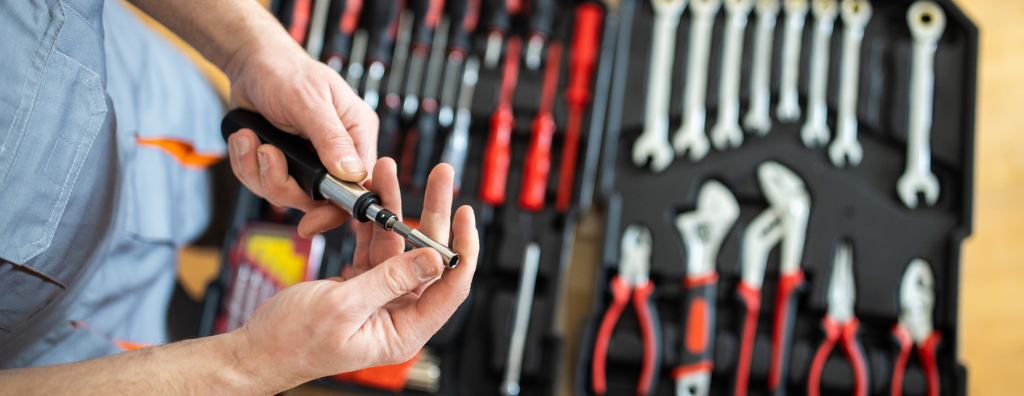For all its perks—stability, tax breaks, building equity—being a homeowner comes with the responsibility of maintaining your home and the occasional repair. Some jobs require a professional, but if you are willing to take on minor repairs or DIY projects, you’ll need the right tools. Whether you’re starting a toolbox from scratch or looking to round out your tool collection, here are the basics every homeowner should have on hand.
Helpful hint: A toolbox filled with all or a few of these items makes a great housewarming, wedding, or graduation present.
Screwdrivers
You don’t need to own a home to know that a screwdriver is a life staple. From replacing batteries in toys to installing shelves on walls, owning a pair of quality screwdrivers—one flathead and one Phillips—is a must. Not many home projects call for extra small screwdrivers but having a set can be handy for fixing eye- and sunglasses.
Hammer
When you think of the word “tool,” a hammer likely comes to mind. Whether that’s because a pounding tool was likely humankind’s first invention or because you need one for nearly any type of handiwork, you’ll be glad you have a traditional claw hammer on hand.
Mallet
Like a hammer but with a rubber or wood surface, a mallet comes in handy when you need to drive wooden dowels or for more delicate projects that require a softer touch. The non-slip surface is also better for holding parts in place or applying pressure than the slippery metal edge of a traditional hammer.
Tape measure
You know the saying, “Measure twice, cut once”? It’s really good advice when it comes to DIY home projects, and a good tape measure makes the measuring part easier. Get one that is at least 25 feet long, with bold, easy-to-read numbers on both sides and that has a locking mechanism.
Utility knife
If all you do with a utility knife is open boxes, you’ll still use it quite frequently (given how often we all get deliveries of home goods these days). But there are tons of other uses for a very sharp item to cut with, including scoring wood or hanging wallpaper.
Wrench
There are a few ways to attach things to each other. Nails and screws have their place, which is why you need a hammer and screwdrivers. But nuts and bolts hold a lot of things together too, and for those you’ll need a wrench. Buying an adjustable one is not only more cost effective but it’ll save space in your toolbox.
Pliers
When you need leverage to tighten or loosen plumbing pipes or bolts, pliers can’t be beat. They can also help you hold things in place as well as bend or shape wire.
Level
When hanging pictures, mounting shelves, or needing to drill multiple holes in a line, you’ll need a level to keep you straight. And, yes, many of us have a level app on our mobile devices, but phones can be clunky and might not be reliable if you have a hard-shell case on your phone. A sturdy level isn’t expensive and can last a lifetime.
Wire cutters
How many of us have dulled a perfectly fine pair of kitchen shears cutting through cables or wires one too many times? (Just us?) Using high-quality wire cutters will not only save your scissors, but it will also ensure a cleaner cut through your wire or cable.
Cordless drill
Though screwdrivers are good for small jobs, a drill is better for screwing into harder surfaces or when the job calls for a lot of holes. Going cordless frees you from the need for extension cords, but spring for the extra battery pack so you always have one fully charged when you need it.
Safety gear
Before you start any home project, make sure you have the right protection for your eyes, ears, hands, and lungs. Safety goggles, ear plugs, heavy-duty gloves, and respirator masks will keep you safe while you’re DIYing.
Nice to haves
Though these items might not be considered essential, you never know when you might need a headlamp or flashlight, hand saw, stud finder, duct tape, or wood glue. You won’t regret keeping them on hand.
 Facebook
Facebook
 X
X
 Pinterest
Pinterest
 Copy Link
Copy Link
